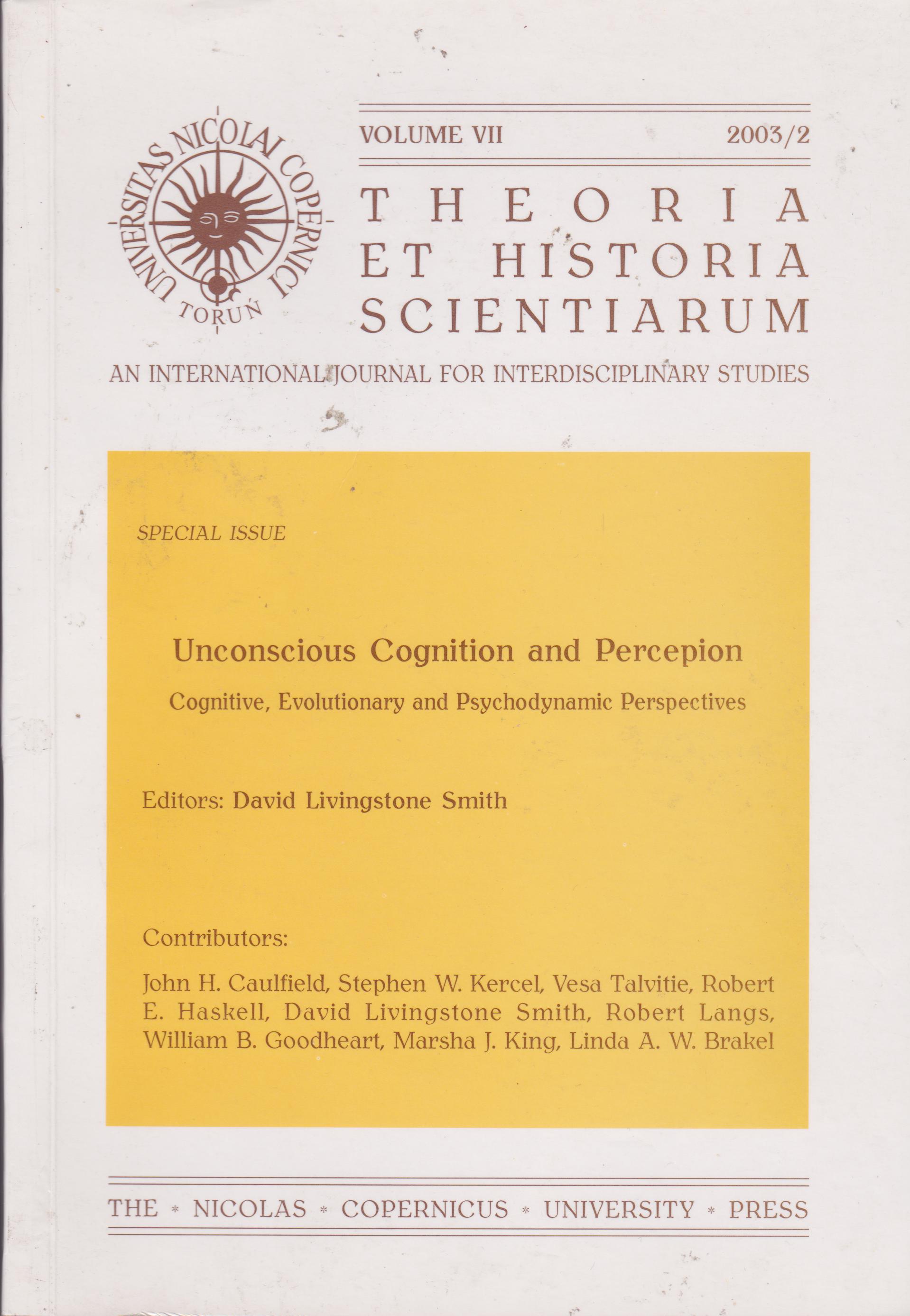Unusual’ human experiences: Kant, Freud and an associationist law
DOI:
https://doi.org/10.12775/ths.2003.022Keywords
human experiences, primary processes, secondary processes, associative principle,Abstract
Kant famously held that there are 12 categories of understanding necessary to ground human experience, where human experience can be taken to include the perception of objects ‘objectively’ and the ordinary daily rationality of mature adults. There are however other ‘unusual’ human experiences, most notably dream and hallucinatory states, and much of the thinking of the very young, all of which seem to be grounded by some other organizing principle, prior to the categories. I want to make a case that this principle is an associationist one; and further that such an associationist principle is prior to and transcendentally necessary for the categories to operate. Since Kant himself held this, although not so famously, the purpose of this paper is not to refute Kant. Rather it is to demonstrate that experiences organized by the associationist law vs. experiences organized by the categories map very well onto the two types of mentation posited by Freud-the ‘primary processes’ and the ‘secondary processes’ respectively. Discovering this mapping can help psychoanalytic theory by providing some convergent support for its posits; and it can make vivid a lesser known piece of Kantian philosophy of mind as it is instantiated by observations made everyday as a practical consequence of psychoanalytic theory.References
Brakel, L. A.W. (1984) The fate of the dream after awakening: Stages toward analytic understanding. Journal of Evolutionary Psychology. Vol. 5: 97-107.
—(1994) On knowing the unconscious: Lessons from the epistemology of geometry and space. International Journal of Psycho-Analysis. Vol. 75: (1): 39-49.
—(2002) Phantasy and Wish: A proper function account for human a-rational primary process mediated mentation. The Australasian Journal of Philosophy, Vol. 80: 1-16.
Cameron, O. &Wimer-Brakel (1979) An anticholinergic toxicity reaction activated by psychological stress. The Journal of Nervous and Mental Disease., Vol. 167 (8): 505-510.
Edelman, G. (1987) Neural Darwinism. New York: Basic Books
Freud, S. (1900) The interpretation of dreams. Standard Edition, Vols. 4-5.
Gentner, D. (1988) Metaphor as structure mapping: The relational shift. Child Develop-ment, 58: 47-59.
Kant, I. (1781, 1787) Critique of Pure Reason. Trans. Norman Kemp Smith. New York: St. Martin’s Press.
—(1783) Prolegomena to Any Future Metaphysics. Edited and introduced by Lewis Beck White. New York: Bobbs-Memll Company, Inc., 1950.
Kitcher, P. (1990) Kant’s Transcendental Psychology. New York: Oxford University Press.
Smith, L. (1989) From global similarities to kinds of similarities: The construction of dimension. In Similarity and Analogical Reasoning. S. Vosniadou and A. Ortony (Eds.) Cambridge: Cambridge Univ. Press.
Spelke, E. (1983, June) Cognition in Infancy,.(Occasional paper No.23). Cambridge MA: MIT Press.
Downloads
Published
How to Cite
Issue
Section
Stats
Number of views and downloads: 339
Number of citations: 0



